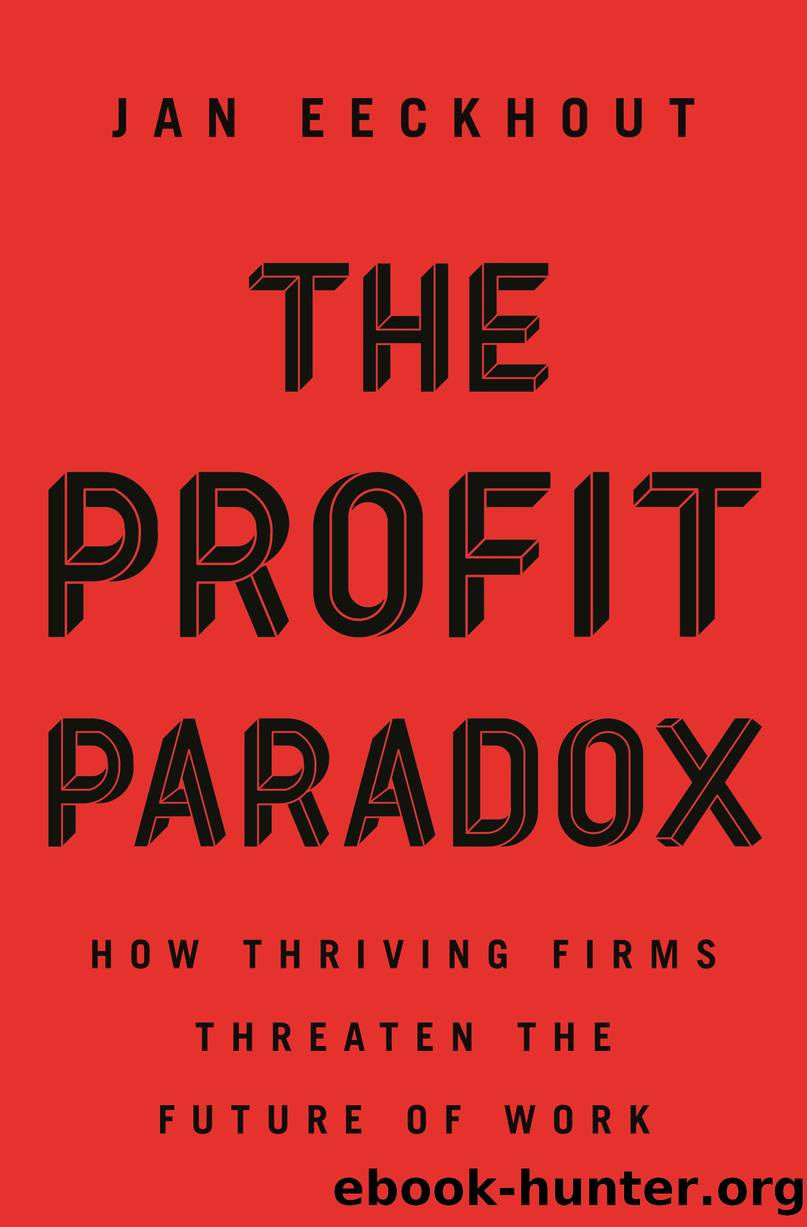The Profit Paradox by Jan Eeckhout;

Author:Jan Eeckhout;
Language: eng
Format: epub
Publisher: Princeton University Press
Published: 2021-04-02T00:00:00+00:00
PART III
The Future of Work and Finding Solutions
9
Plenty of Reasons to Be Optimistic
WHILE RAPID TECHNOLOGICAL CHANGE is, to a large extent, what allows firms to build market power, we cannot make the mistake of throwing the baby out with the bath water. The rise of market power should not be an excuse to resurrect the Luddites, the mid-nineteenth-century English displaced workers who destroyed the labor-saving weaving machines. In the long run, technological change is the unique driver of progress. We cannot afford to mute innovation.
Work in modern times now shares similarities with work a century ago, but overall we are in a much better place now than we were a hundred years ago. Transitions are costlyâthere are always winners and losersâbut in the long run technological change and globalization increase the standard of living and make people unambiguously better off. Even Joe and Betty, and the many left behind by rapid economic progress, are worse off only relative to Wei and Li Min. Most would say they are better off than the shepherd, one of the âlosersâ of a generation ago.
In economic terms, the standard of living for nearly everyone is higher now than when they were children, only now their house is no longer the fanciest one on the block. And while Erin, our senior technical advisor from chapter 1, has drawn the shortest economic stick, her overall quality of life is significantly higher than that of those who were at the bottom of the ladder a century ago; she has a much greater life expectancy, she consumes an abundance of calories, she has much more free time, and she has access to cheap transportation and travel. Moreover, she can be cured from many illnesses, and vaccines help us to avoid many deadly illnesses. Even the COVID-19 pandemic now is much less deadly than it would have been only half a century ago because of the development of a vaccine.
The effect of technological progress is striking. We may forget how infectious diseases that are curable now were still deadly until fairly recently. George Orwell could not recover from tuberculosis in 1950 at University College Hospitalâarguably one of the best medical centers in Great Britainâbecause he did not get the proper antibiotics treatment, despite the fact that he had connections to help him obtain scarce medicine and money in the bank from the royalties of his best-selling novel Animal Farm.1 He died because the treatment was still in its early stages of development.
Technological progress increases consumption and raises well-being, all through lower relative prices. The best example of this is the cost of food. Households in most Western countries now spend on average 12 percent of their income on food,2 and all the food is produced by less than 1 percent of the population employed in agriculture. A century ago, expenditure on food for most households was by far the largest item and constituted nearly the entire budget. The concept known as Engelâs law captures the relation between expenditure and
Download
This site does not store any files on its server. We only index and link to content provided by other sites. Please contact the content providers to delete copyright contents if any and email us, we'll remove relevant links or contents immediately.
Zero to IPO: Over $1 Trillion of Actionable Advice from the World's Most Successful Entrepreneurs by Frederic Kerrest(4490)
Machine Learning at Scale with H2O by Gregory Keys | David Whiting(4289)
Never by Ken Follett(3928)
Harry Potter and the Goblet Of Fire by J.K. Rowling(3839)
Ogilvy on Advertising by David Ogilvy(3591)
Shadow of Night by Deborah Harkness(3350)
The Man Who Died Twice by Richard Osman(3059)
Book of Life by Deborah Harkness(2919)
The Tipping Point by Malcolm Gladwell(2901)
Will by Will Smith(2898)
0041152001443424520 .pdf by Unknown(2841)
My Brilliant Friend by Elena Ferrante(2812)
Purple Hibiscus by Chimamanda Ngozi Adichie(2806)
How Proust Can Change Your Life by Alain De Botton(2794)
How to Pay Zero Taxes, 2018 by Jeff A. Schnepper(2641)
Hooked: A Dark, Contemporary Romance (Never After Series) by Emily McIntire(2538)
Rationality by Steven Pinker(2345)
Can't Hurt Me: Master Your Mind and Defy the Odds - Clean Edition by David Goggins(2316)
Borders by unknow(2300)
